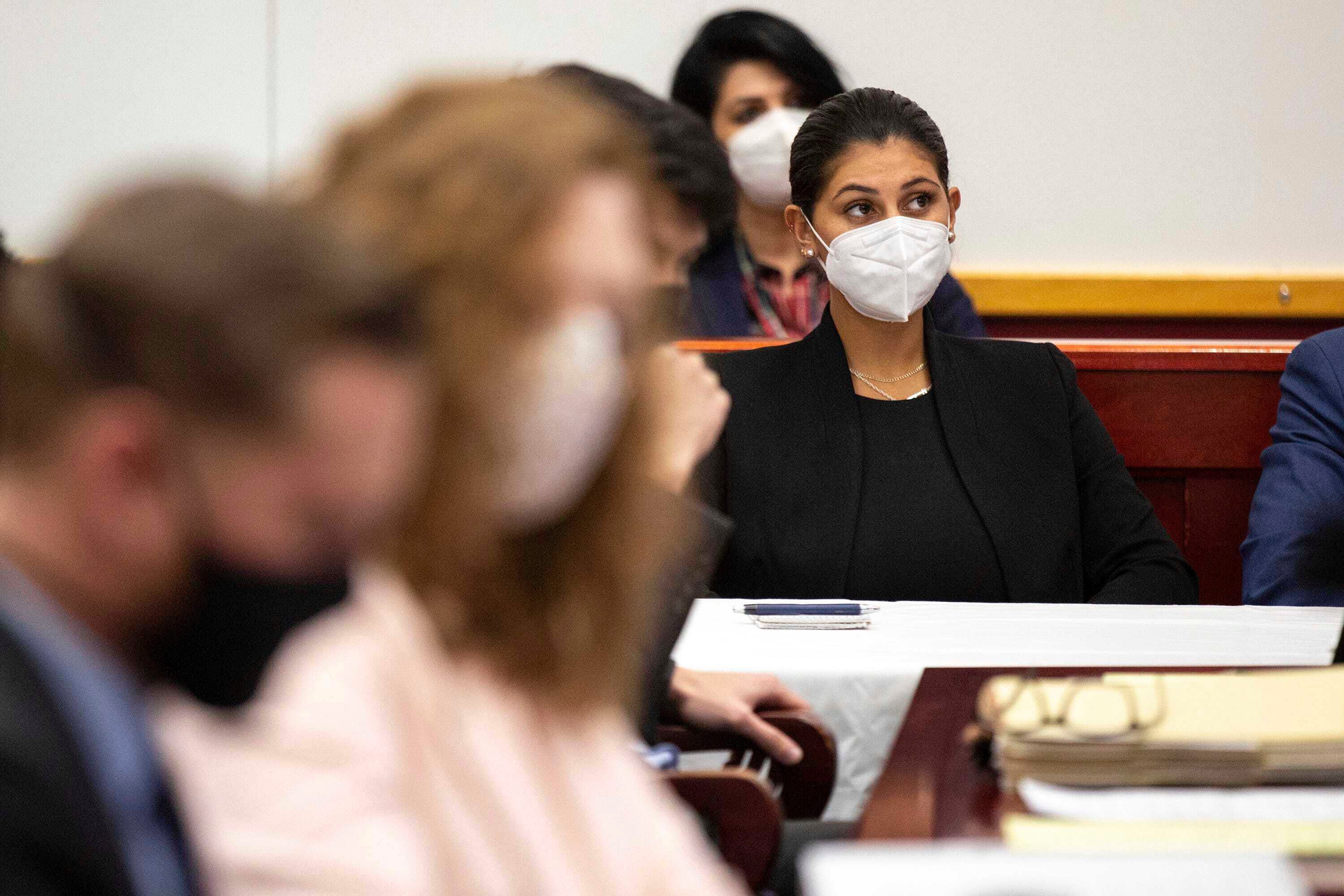Officer says he failed to record arrest of Iowa journalist
A police officer who pepper sprayed and arrested a journalist who was covering an unruly Black Lives Matter protest says he failed to record the interaction on his body camera and did not notify a supervisor as required by policy

An Iowa police officer who pepper sprayed and arrested a journalist who was covering an unruly Black Lives Matter protest acknowledged Tuesday that he failed to record the interaction on his body camera and did not notify a supervisor as required by department policy.
Officer Luke Wilson said his body camera was on when he arrested Des Moines Register reporter Andrea Sahouri on May 31, 2020, and that he believed he had activated its record function. He said he learned later that it failed to record the arrest but that he did not notify a supervisor to see if the video could be recovered after the fact as required by department policy.
Wilson’s testimony came on the second day of a trial in which Sahouri and her former boyfriend, Spenser Robnett, are charged with failure to disperse and interference with official acts. The prosecution has drawn widespread criticism from media and human rights advocates, who say Sahouri was doing her job as a journalist and committed no crimes. The pair face fines and potentially even jail time if convicted.
The newspaper had assigned Sahouri to cover the protest calling for racial justice at Merle Hay mall in Des Moines, days after the death of George Floyd a Black Minneapolis man who was declared dead after a white officer put his knee on his neck for nine minutes. Hundreds of protesters gathered outside the mall, and Sahouri was reporting the details live on Twitter.
Wilson, an 18-year veteran of the Des Moines Police Department, said he responded to the protest and found a “riotous mob” that was breaking store windows, throwing rocks and water bottles at officers, and running in different directions. He said his unit was told to clear a commercial parking lot, and he used a device known as a fogger to blanket the area with clouds of pepper spray.
He said the chemical irritants worked in forcing most of the crowd to scatter, including Robnett, but that he decided Sahouri needed to be arrested when she did not leave. Wilson said he was unaware that Sahouri, whose eyes were watering and nose was running from the spray, was a journalist.
Wilson said that he grabbed her with his left hand while his fogger was still in his right hand. Wilson said that Robnett returned and tried to pull Sahouri out of his grasp, and Wilson said deployed more pepper spray that “incapacitated” Robnett.
Under cross-examination by defense attorney Nicholas Klinefeldt, Wilson said that he charged Sahouri with interference because she briefly pulled her left arm away while he was arresting her. He acknowledged, however, that he didn't mention that claim in his police report on the arrest.
Wilson said that he only rarely used his body camera during his normal job at the city airport, wrongly believed it had recorded Sahouri’s arrest and was unfamiliar with the details of the department's body camera policy.
The cameras are always capturing video when on and can retrieve video of incidents that were not recorded afterward if they have not yet been erased. Officers who fail to record incidents they should have are required to notify supervisors, who can then try to recover video that does not have audio. It was clear immediately that Sahouri's arrest was newsworthy and controversial.
Prosecutors say Sahouri and Robnett ignored police orders to leave the area long before their arrests, while the defense argues any such orders weren't clear.
Body camera video played in court showed officers yelling at protesters to get out of an intersection and instructing them to be peaceful about 90 minutes before their arrests, and Robnett and Sahouri complied.
A separate order to disperse could be heard faintly on the video in the background — so quiet that even an officer testifying for the prosecution seemed to struggle to make it out. But prosecutors argued the message was louder at the scene and broadcast over a public address system.
Wilson, however, said that he did not initially charge Robnett with failing to disperse because he left when he was hit with pepper spray.
Subscribe to Independent Premium to bookmark this article
Want to bookmark your favourite articles and stories to read or reference later? Start your Independent Premium subscription today.
